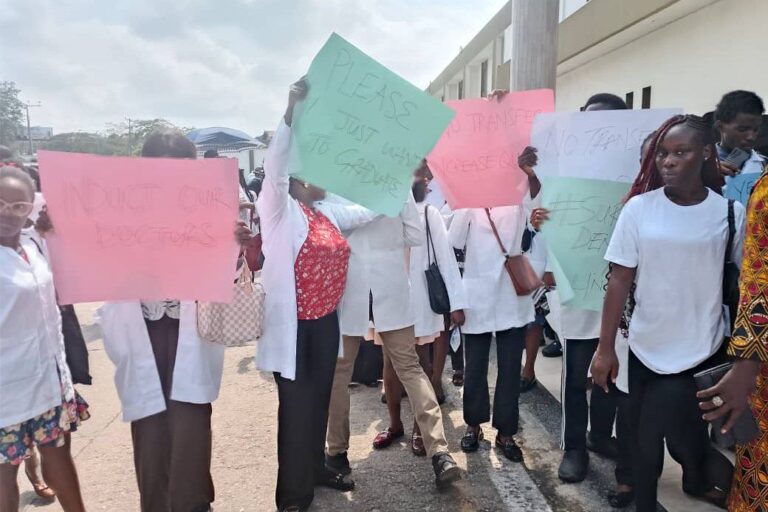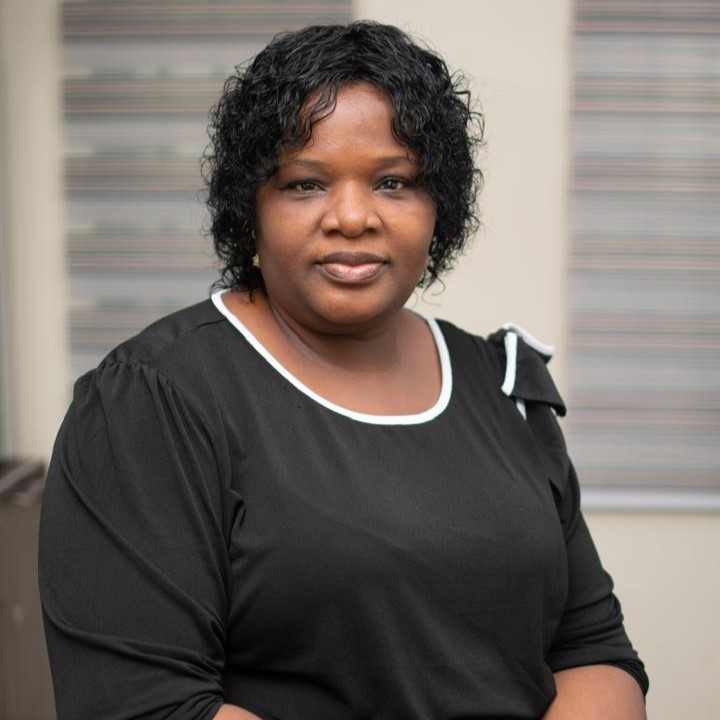Amid the ongoing quota crisis at the University of Calabar (UNICAL), the National Universities Commission (NUC), the country’s regulatory body for university education, has clarified that the institution did not breach any regulatory provision to warrant the strong hammer recently wielded by the Medical and Dental Council of Nigeria (MDCN).
A Deputy Director in charge of Academic Planning and Head of Resources and Strategic Planning at NUC, Nte Bisong, said his agency, as a creation of the country’s constitution, is responsible for the accreditation of programmes and allocation of quotas for Nigerian universities, and not the responsibility of professional bodies.
Mr Bisong, a PhD holder, represented the Executive Secretary of NUC at the July edition of the monthly dialogue by the Education Writers’ Association of Nigeria (EWAN), a body of journalists across print, online, and broadcast media reporting on education.
READ ALSO: Admission Quota: Nigerian university’s dental students stranded as MDCN fumes
In his welcome remark, the Chairman of EWAN, Mojeed Alabi, who moderated the dialogue, said other concerned authorities in the matter, including the Director of University Education at the Federal Ministry of Education, Rakiya Iliyasu; MDCN Registrar, Fatimah Kyari, and the UNICAL Vice-Chancellor, Florence Obi, a professor, among others, were invited, but “they never showed up, and without providing any excuse.”
Meanwhile, other concerned stakeholders, including Nigeria’s former Minister of Education, Chinwe Obaji, a professor; the Vice-Chancellor of Lagos State University (LASU), Ojo, Ibiyemi Olatunji-Bello, a professor, and a Professor at the Department of Anatomy, College of Medicine of the University of Health Sciences, Ila-Orangun, Osun State, Ahmad Adekilekun, among others attended the dialogue.
About UNICAL quota crisis
The fate of about 300 dental students of UNICAL seems to be hanging in the balance, following the institution’s alleged disregard for the MDCN admission quota. The institution was alleged to be admitting up to 90 students annually, far exceeding the 10-student limit approved under the provisional accreditation granted by the professional body.
While the university’s vice-chancellor, Mrs Obi, a professor, had noted that the problem predated her tenure, and that MDCN had been aware of the issue since 2013/2014 when it started, the chairman of the governing board of MDCN, Afolabi Lesi, a professor at the College of Medicine of the University of Lagos (CMUL), Idi-Araba, expressed strong disapproval of the university’s actions.
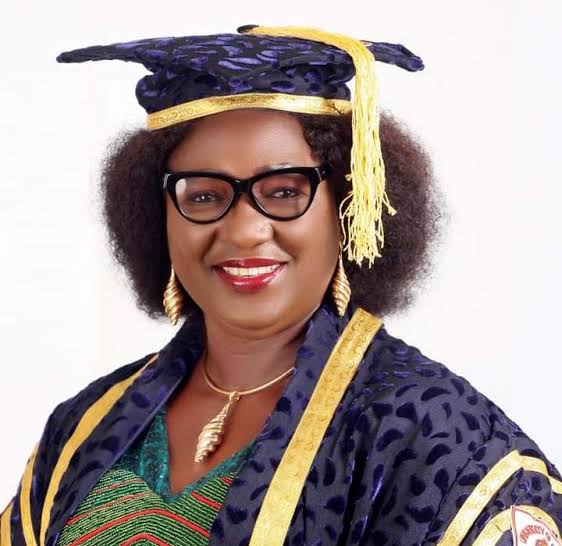
Mr Lesi said UNICAL was “in serious breach of its approved quota,” describing the disregard for regulatory guidelines as unacceptable.
But at the EWAN dialogue on Thursday, Mr Bisong, a PhD holder, maintained that the problem with UNICAL is with MDCN and not NUC.
Mr Bisong revealed that the executive secretary of NUC had been well briefed about UNICAL’s case.
He said, having analysed the brief by the vice-chancellor, NUC noticed that the problem with the dentistry programme of UNICAL started in the 2013/2014 academic session. “At that time, the programme was under the faculty of medicine and dentistry, and so it was just a department in the faculty of medicine. Fast forward to 2015 or thereabouts, the university established its own Faculty of Dentistry, meaning that as of the time it became a faculty, it needed more students because of increased capacity.”
“The repositioning of the dentistry programme in (UNICAL) is therefore not before NUC. The institution’s dentistry programme has no problem with NUC,” he said.
He, however, noted that under the leadership of the Minister of Education, Tunji Alausa, a medical practitioner, the concerned stakeholders, including the NUC boss, MDCN authorities, and the management of the university, are meeting to logically resolve the logjam.
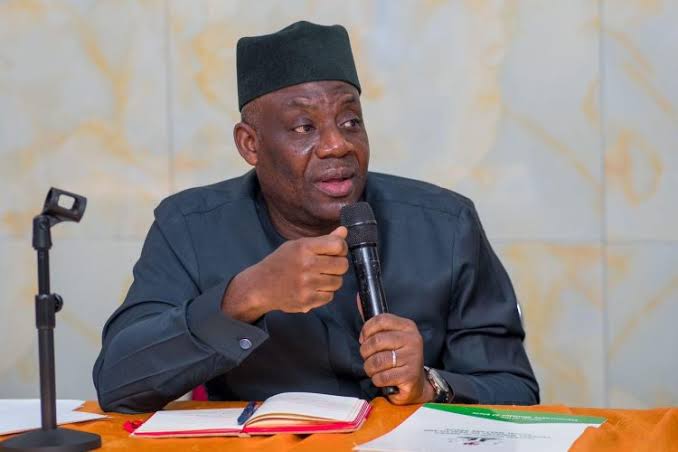
“Because the minister is involved, I am aware that this has led to two meetings with the vice-chancellor and MDCN involved. I am sure they won’t go for nothing, something will come out of it.”
Regulatory conflicts
The crisis rocking the university seems to have emanated from conflicting regulatory powers between two supposed independent regulatory authorities.
MDCN, under the CAP M8 of the Medical and Dental Practitioners Act (2004), derives its power to “determine the standards of knowledge and skill to be attained by persons seeking to become members of the medical or dental profession and reviewing those standards from time to time as circumstances may permit…”
Similarly, NUC in Chapter E3, otherwise known as CAP E3 of the Education (National Minimum Standards and Establishment of Institutions) Act (1993 No 9), relies on Subsection 10 (1) to derive the power to set minimum standards in universities across the country.
Subsection 10 (1) reads in part: “The power to lay down minimum standards for all universities and other institutions of higher learning in the federation and the accreditation of their degrees and other academic awards is hereby vested in the National Universities Commission in formal consultation with the universities for that purpose, after obtaining prior approval thereof through the minister, from the President.”
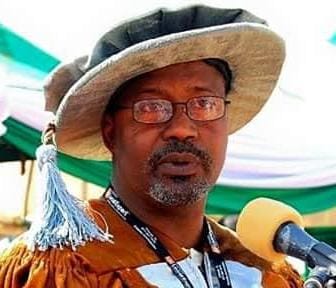
As part of the efforts to address the conflicts, Mr Bisong said the education minister had, in May, issued a circular, directing the stoppage of multiple accreditations.
He said: “I have with me a circular from the Minister of Education, Dr Tunji Alausa. This circular is dated 9 May. The heading is the ‘Stoppage of Multiple Accreditations by Professional Bodies in Nigerian Universities,’ which means that no professional body should go to any university without the NUC being aware. This also means that NUC should be carried along in the activities of institutions by professional bodies.
“Even on this UNICAL issue, NUC was not aware that MDCN was going there. If they had informed NUC that they were visiting UNICAL, it would have sat with them, discussed, and then guided them, because I am sure we have more of the wherewithal to handle universities than MDCN. We know the universities better; it’s our terrain. So we can provide them with better information if they carry us along.”
He said professional bodies, including MDCN or the Council of Legal Education (CLE), Council for the Regulation of Engineering in Nigeria (COREN), among others, cannot override the power of NUC. He said the professional bodies should wait till the students are set to practice their various professions before their competence is tested, and not by imposing restrictions on the institutions.
READ ALSO: EXCLUSIVE: ASUU president blows hot, says honeymoon with Tinubu-led govt over
According to Mr Bisong, the issue of granting admission quota is within the purview of NUC, stressing that there cannot be two bodies granting admission quota in the Nigerian university system.
“Professional bodies do not establish any academic programmes in Nigerian universities, and you cannot give that which you do not have or own. NUC has the full mandate of the law to establish academic programmes in the country. But to say that the commission will establish a programme, then MDCN will approve the quota, is not ideal,” he reiterated.
Queries for lawmakers
Mr Bisong further noted that, “Over the years, some professional bodies have gotten their laws passed by the national or state assemblies over time with the provision to accredit programmes without involvement of NUC. Yet, we have laid down minimum standards in the university system. But our point is this, most often, when these professional bodies pass through the National Assembly to get their act in place, the NUC, that is the regulatory body empowered constitutionally to facilitate other university education in Nigeria, is not invited to participate in public hearing, and it is most often never aware that such public hearings take place.
“So, those laws can act in contradiction to the constitution that we as a commission derive our power from. But common sense will say that when any act of the parliament contradicts that of the constitution, the provision embedded in the constitution supersedes. Our laws are embedded in the Constitution of the Federal Republic of Nigeria of 1999 (as amended). So, we always insist that our powers, laws supersede those of professional bodies.”
How NUC allocates quotas
According to Mr Bisong, when a programme is established, subject to NUC verification, the programme is automatically awarded a slot of 50 students to admit, whether it is a public or private university. So, it is sad to know that a programme will come on board and MDCN will allocate 10 slots to such a programme.
He said apart from opening up access to university education, NUC would have considered the required human and material resources before approving a programme. “So, how do you have lecturers, a functional teaching hospital, and still be awarded only 10 students?”
He said: “We are aware that every time students sit UTME, about 2 million apply, but only between 500,000-600,000 are given spaces in our universities. So the challenge of access is there. So, while the commission, as a government agency, is always out to support the government’s effort, the professional bodies do not see that. In expanding access, we give so much credence to quality; we don’t just expand access.
NUC’s questions for MDCN
Meanwhile, the NUC official has asked the MDCN and other relevant professional bodies in the country to show the evidence of their involvement in the regulation of degree programmes for foreign universities.
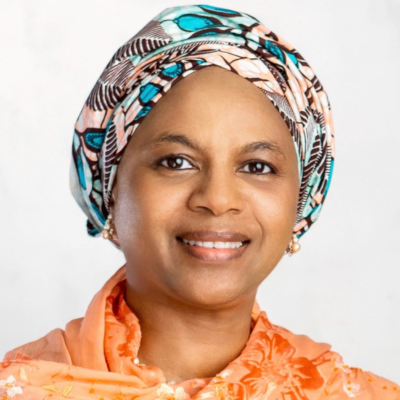
He said Nigerians who study abroad are inducted into the various professions upon their successful participation in examinations conducted by the professional bodies, among other conditions.
Mr Bisong said, “So, if you study law abroad, you only need to apply to the Nigerian Law School to participate in its one-year training, and if you pass your exam, then you are called to the Nigerian bar. Was the Council of Legal Education involved in the programme designs in the university where the law student came from? It is the same situation for Medicine or Engineering. The one-year housemanship in teaching hospitals by medical graduates is to induct them into the profession.
“However, if the graduates are subjected to the professional examinations and they fail, and such failures become a pattern in a particular institution, then MDCN can raise the alarm. But as much as many people complain of the education standards in Nigeria, any of our students who enrol for other programmes abroad continue to excel. So, the case is whatever the professional agencies cannot do with the foreign universities, they should stop it here too.”
NUC does not establish universities
When asked questions on the proliferation of universities in Nigeria, Mr Bisong said his agency does not establish universities but only accredits programmes and approves admission quotas based on the institutions’ carrying capacities.
According to him, the approving authority for the establishment of universities is the Federal Executive Council (FEC), chaired by the President of the country, noting that NUC is not a member of FEC.
“What NUC does is that when a university comes on board, it ensures that human and material resources are right on the ground for the university to take off, and that is what we do.”
READ ALSO: A Review of Olorunyomi’s Paper on Journalism at Ajayi Crowther University – By Ajibola Amzat
Ex-minister decries admission above carrying capacity
Joining the dialogue from Atlanta, the former education minister, Mrs Obaji, expressed concern over the persistent disregard for carrying capacity in Nigerian universities, warning that such practices undermine the quality of education and jeopardise the future of students.
Mrs Obaji, who served as Nigeria’s first female minister of education in 2005, questioned why institutions would admit more students than their facilities could accommodate.
She said: “Everything about education rests in the hands of the education ministry and the parastatals under the ministry. On the other hand, and from what I know about what is happening, the carrying capacity of any course or institution is determined by the facilities available in that institution for any particular course. I know most of the universities have always had issues with the professional bodies. But, if the facilities you have can only take 50 students, why go and admit more than 50? When they now get into the professional class and begin their practicals, you then tell them they have failed. That is not right.”
Call to action
The NUC deputy director has called on members of professional bodies to work with government establishments to ensure that the nation’s university education aligns with the 21st-century realities.
He said: “There is a need for us to form a round table to discuss how things will work out. Professional bodies need to stay off granting admission quotas; they do not establish programmes, and they do not employ lecturers. It takes two to know that.
“While we don’t negate the role of professional bodies in higher education, we want them to work with us, to know when they will come in and when to stop. MDCN should work with the NUC, not the NUC working for the MDCN. MDCN is a professional body.”

